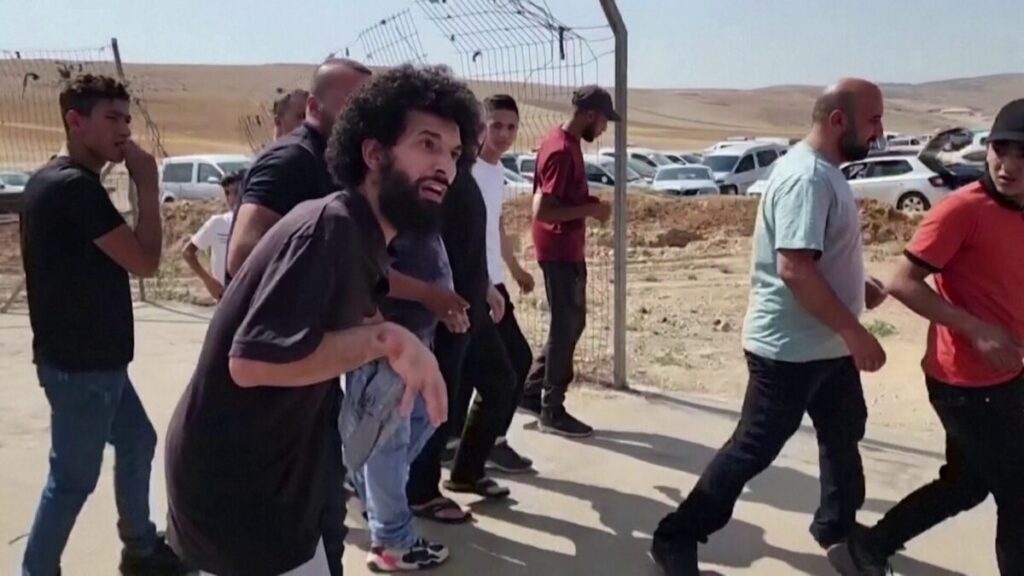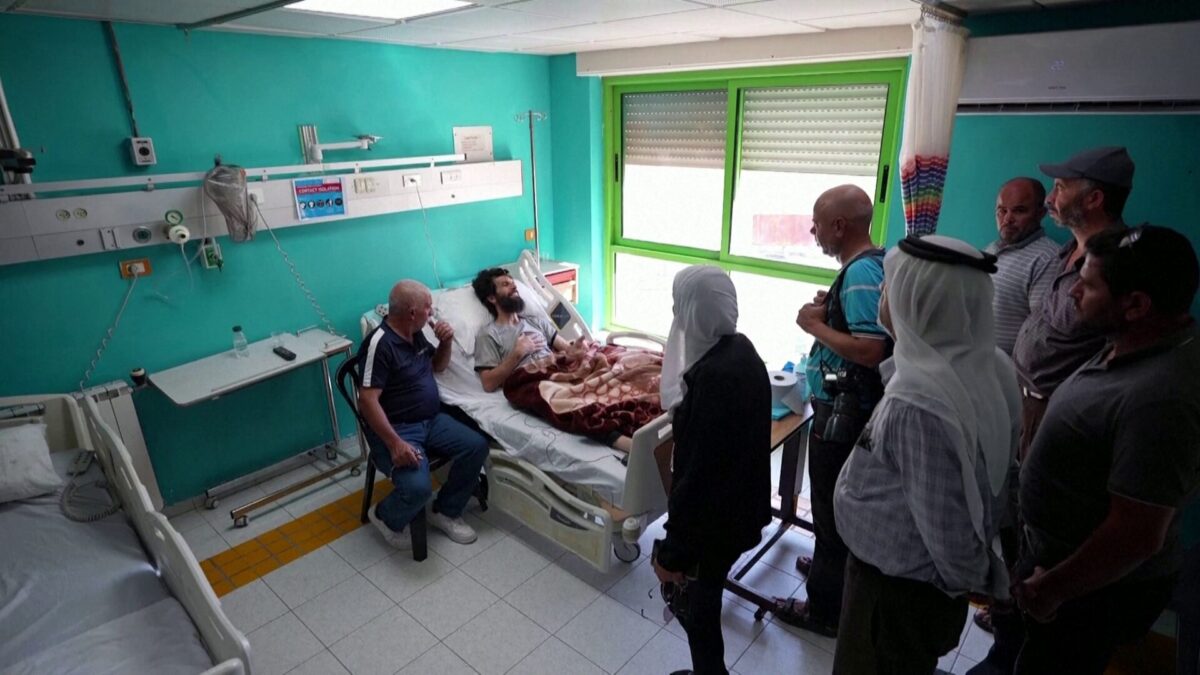BETHLEHEM, West Bank — Once a powerful bodybuilder, Moazaz Obaiyat emerged from a nine-month detention in Israel unable to walk unaided. Diagnosed with severe post-traumatic stress disorder, he described a harrowing experience marked by physical and psychological abuse. Yet in October, just months after his release, Obaiyat, a 37-year-old father of five, was arrested again in a pre-dawn raid.
Obaiyat’s case, documented by Bethlehem Psychiatric Hospital, highlights the alleged abuses faced by Palestinian detainees in Israeli custody, a contentious issue now under renewed scrutiny amid international efforts to secure a ceasefire between Israel and Hamas. Such an agreement could include the release of thousands of Palestinian prisoners in exchange for Israeli hostages held in Gaza.
For this report, Reuters interviewed four Palestinian men detained by Israel following the Oct. 7 Hamas attacks, which triggered the latest Gaza conflict. All four were held without formal charges or convictions before their eventual release. They described enduring beatings, sleep deprivation, food denial, and prolonged stress positions, leading to lasting psychological scars.
Although Reuters could not independently verify their accounts, the descriptions align with investigations by human rights groups that have documented abuses in Israeli detention facilities.
Reports of abuse
A United Nations report published in August described widespread torture, sexual assault, and inhumane conditions for Palestinians held in Israeli detention. The White House called the findings “deeply concerning.”

Israel’s military acknowledged it is investigating cases of alleged abuse of Gazan detainees but “categorically” denied systematic mistreatment in its detention facilities. It declined to comment on individual cases, as did the Israel Prison Service and the country’s internal security agency.
Tal Steiner, executive director of the Public Committee Against Torture in Israel, an advocacy group, said the symptoms described by former detainees often have long-term consequences, reverberating through families.
Obaiyat, speaking from a hospital bed after his initial release, showed scars on his emaciated legs, recalling isolation, hunger, and abuse with metal rods. Once muscular, photos of him before incarceration show a starkly different figure.
Rising detentions and deaths
Since the outbreak of war, the number of Palestinian detainees has surged, with rights groups estimating that prisoner numbers in Israel and the West Bank have doubled to more than 10,000. Of these, roughly 6,000 Gazans have been incarcerated, according to Israeli military data.
The Palestinian Prisoners’ Club, an advocacy organization, reported that at least 56 Palestinians have died in custody during the war—a sharp increase compared to one or two annual deaths in recent years. Israel’s military stated it conducts criminal investigations into all deaths of Palestinians in its custody.
A report by the Israeli rights group B’Tselem accused Israel of turning its prison system into a “network of torture camps” during the conflict.
Using emergency legislation enacted after the Oct. 7 Hamas attack, Israeli National Security Minister Itamar Ben-Gvir ordered harsher conditions for Palestinians classified as “security prisoners.” The move has drawn sharp criticism from human rights organizations, which accuse Israel of exploiting the prison system to exert collective punishment.
As efforts to negotiate a ceasefire intensify, the plight of Palestinian detainees remains a flashpoint in the broader Israeli-Palestinian conflict, underscoring the enduring human cost of the ongoing war.
Source: Reuters





